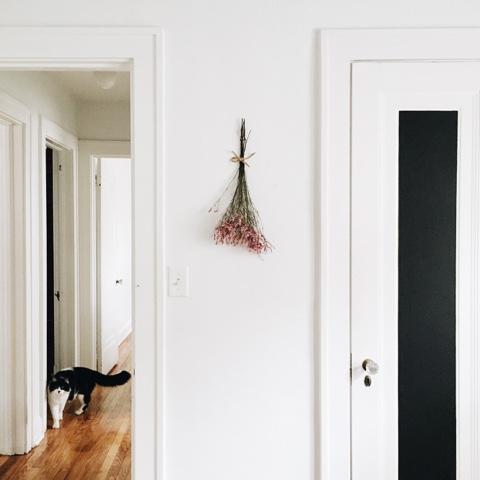In our modern world of technology, we've distanced ourselves from our connection to nature. You see it in children who prefer video games over going outside to play and their parents who want to keep them inside for fear of a bee sting or poison ivy. But for older generations, there are fond memories of the smell of dirt and moss from the creek. They spent time in nature making mud pies, climbing trees and digging for worms. They used their imaginations laying in the grass and deciding what each cloud looked like as it passed and used their hands to turn dandelion into floral crowns.
By disconnecting with nature, we are disconnecting from ourselves. Every living thing is tied to nature and its schedule. There is a natural rhythm that is meant to be followed with the rising and setting of the sun, the changing of the seasons and the flow of our daily routine. Yet, we choose the convenience of a lamp so we can read past nightfall which disrupts our sleep cycle, we control the temperature of our homes with thermostats and grab our cellphones to check social media the second we wake up. We have decided to extend our days to get as many things accomplished instead of letting our minds and bodies unwind and relax.
It's undeniable the connection we have to nature. There is a reason why people correlate strange behavior in others with a full moon. By disconnecting with nature, we become ill, stressed, unfocused and tired. Inconsistent schedules make our bodies unsure of when the next meal is or when it will get to rest.
By creating a daily routine aligned with nature, we can be comforted knowing that we have stability and a reliable day ahead of us. We can also do things to reconnect with nature and once again become part of the community of plants and animals that we live in.
Wake Before Sunrise
If you find it hard to wake up in the morning, it's probably because you have been on an inconsistent sleep schedule. If you wake up before sunrise and do things to slowly work your way out of sleep, it has time to wake naturally and with the sun. This is much healthier than being jolted out of bed to a screeching alarm clock and relying on strong coffee to force your body awake. If you must rely on an alarm clock, make it something pleasant to hear like birds chirping or ocean waves.
Have a Morning Routine
Once you are out of bed, do things to prepare yourself for the day ahead. Doing yoga or quiet reflection can bring your mind into focus.
Keep Consistent Meal Times
If your body is used to a meal schedule, it will know when to expect to eat again. This means less snacking to get through the day and relying on unhealthy alternatives such as vending machines.
Eat Seasonally
One of the many advantages of shopping farmers markets is you can only purchase what's in season. You will learn to appreciate seasonal fruits and vegetables if you can only have at certain times of the year.
Take Time to Go Outside
You don't have to live in the forest or mountains to take advantage of nature all around you. Even city dwellers have parks and greenhouses to explore. Something as simple as a walk through the neighborhood (without music) and listening to the birds and rustling trees will relieve stress. Take your shoes off and walk on the grass to connect with the earth.
Don't Leave Dishes in the Sink
Knowing that you have everything taken care of at the end of the day is important in order to not feel as if you have things on your to-do list when you go to bed at night. It is easier to sleep without worry and its comforting to wake up to a clean house to start your day. Make it a habit to take care of little chores today so you have a clean home to wake up to tomorrow.
Unwind at Sunset
Your body rhythms should be aligned with nature. So when the sun sets, that's when you need to start transitioning to sleep and begin the process of slowing down your mind. Some ways you can unwind and prepare for rest are taking a warm bath, diffusing your favorite essential oils, drinking warm milk or meditating. This time should be spent without technology distractions or bright lights that will keep you awake like television, cell phones or erasers. It is vital that this time is consistent each night in order to regulate your sleep patterns.








